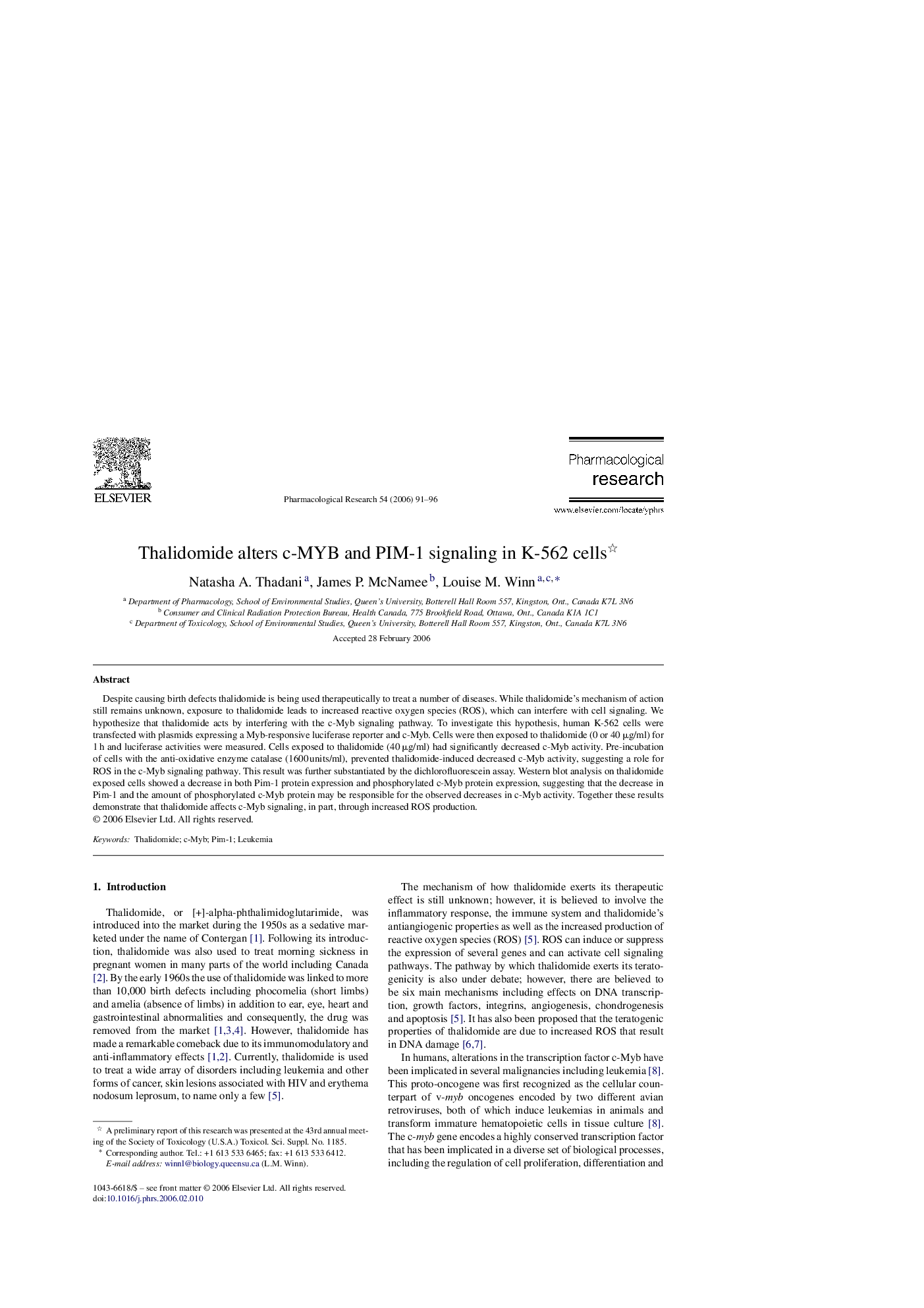| کد مقاله | کد نشریه | سال انتشار | مقاله انگلیسی | نسخه تمام متن |
|---|---|---|---|---|
| 2561599 | 1126942 | 2006 | 6 صفحه PDF | دانلود رایگان |

Despite causing birth defects thalidomide is being used therapeutically to treat a number of diseases. While thalidomide's mechanism of action still remains unknown, exposure to thalidomide leads to increased reactive oxygen species (ROS), which can interfere with cell signaling. We hypothesize that thalidomide acts by interfering with the c-Myb signaling pathway. To investigate this hypothesis, human K-562 cells were transfected with plasmids expressing a Myb-responsive luciferase reporter and c-Myb. Cells were then exposed to thalidomide (0 or 40 μg/ml) for 1 h and luciferase activities were measured. Cells exposed to thalidomide (40 μg/ml) had significantly decreased c-Myb activity. Pre-incubation of cells with the anti-oxidative enzyme catalase (1600 units/ml), prevented thalidomide-induced decreased c-Myb activity, suggesting a role for ROS in the c-Myb signaling pathway. This result was further substantiated by the dichlorofluorescein assay. Western blot analysis on thalidomide exposed cells showed a decrease in both Pim-1 protein expression and phosphorylated c-Myb protein expression, suggesting that the decrease in Pim-1 and the amount of phosphorylated c-Myb protein may be responsible for the observed decreases in c-Myb activity. Together these results demonstrate that thalidomide affects c-Myb signaling, in part, through increased ROS production.
Journal: Pharmacological Research - Volume 54, Issue 2, August 2006, Pages 91–96